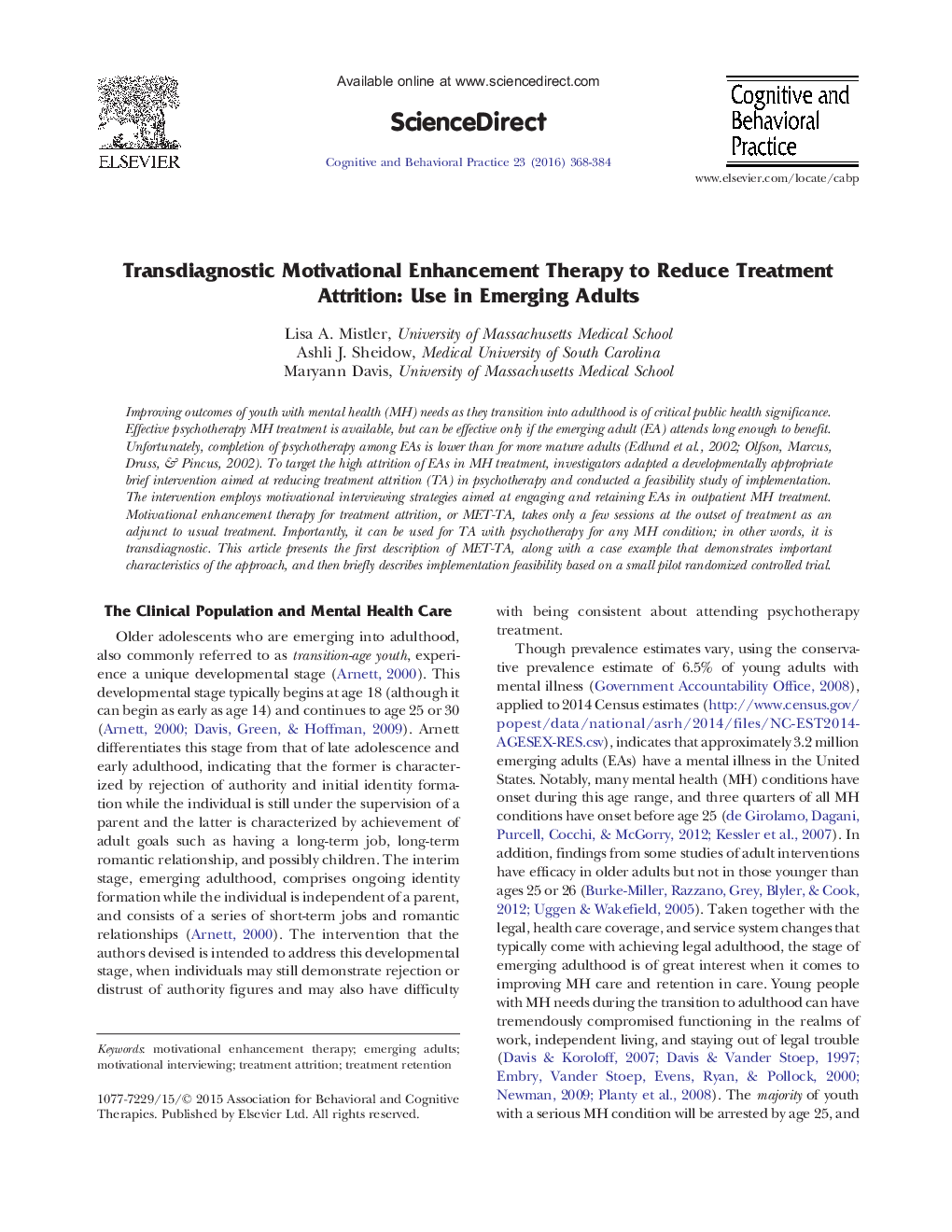| Article ID | Journal | Published Year | Pages | File Type |
|---|---|---|---|---|
| 904225 | Cognitive and Behavioral Practice | 2016 | 17 Pages |
•Transdiagnostic MET to reduce psychotherapy treatment attrition in EAs is described•Case example dialogues are provided•Results from small feasibility study indicate high fidelity and acceptability•MET-TA needs to be tested for efficacy in a larger RCT
Improving outcomes of youth with mental health (MH) needs as they transition into adulthood is of critical public health significance. Effective psychotherapy MH treatment is available, but can be effective only if the emerging adult (EA) attends long enough to benefit. Unfortunately, completion of psychotherapy among EAs is lower than for more mature adults (Edlund et al., 2002; Olfson, Marcus, Druss, & Pincus, 2002). To target the high attrition of EAs in MH treatment, investigators adapted a developmentally appropriate brief intervention aimed at reducing treatment attrition (TA) in psychotherapy and conducted a feasibility study of implementation. The intervention employs motivational interviewing strategies aimed at engaging and retaining EAs in outpatient MH treatment. Motivational enhancement therapy for treatment attrition, or MET-TA, takes only a few sessions at the outset of treatment as an adjunct to usual treatment. Importantly, it can be used for TA with psychotherapy for any MH condition; in other words, it is transdiagnostic. This article presents the first description of MET-TA, along with a case example that demonstrates important characteristics of the approach, and then briefly describes implementation feasibility based on a small pilot randomized controlled trial.
